Inburgering with Dutch News: the 15 biggest political parties
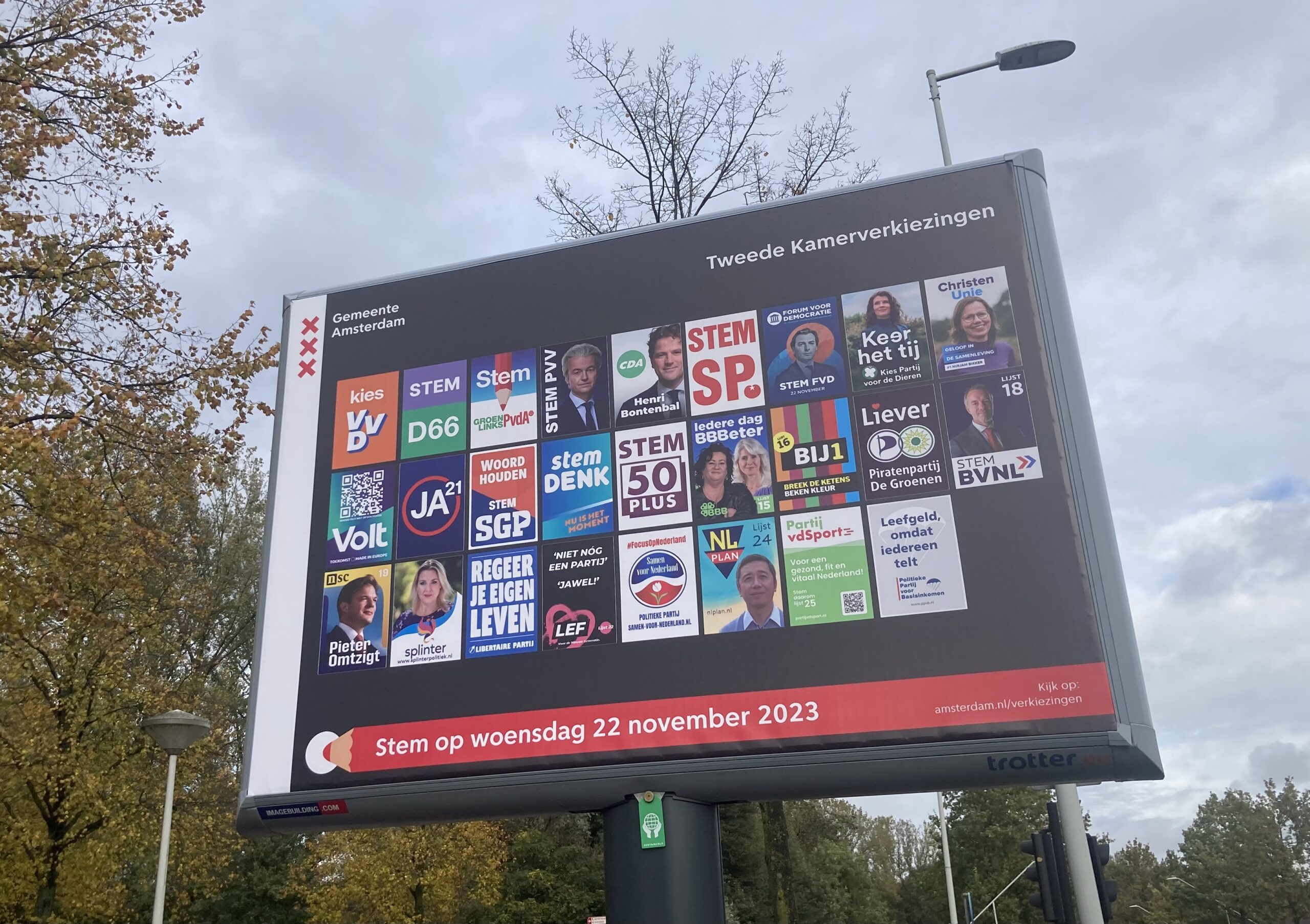
The Netherlands goes to the polls on October 29 to elect a new government. You may not be able to vote, but you do need to know who is who. BBB, PvdA/GL, SGP… it is a bewildering range of abbreviations and ideas.
Here’s a quick guide to all the parties likely to win at least one seat in the 150-seat lower house of parliament (in alphabetical order, so you know we are not biased).
Lesson 45 (updated): the biggest Dutch political parties
BBB
Campaign leader: Caroline van der Plas
Seats won in 2023: 7 or 4.65% of the vote
Caroline van der Plas launched BBB on the back of the 2020 farmers protests and became part of the outgoing coalition after winning seven seats in 2023.
The party is anti-strict climate measures, pro-farmer and pro-rural life and was seen as the main supporter within the cabinet of the far-right PVV. Van der Plas, herself, is half Irish.
Stricter border controls and a limit of 15,000 asylum seekers per year are among the policies in the BBB’s draft election manifesto as the party looks to make immigration its main issue this time round.
CDA
Campaign leader: Henri Bontenbal
Seats won in 2023: 5 or 3.3% of the vote
The Christen Democratisch Appèl (Christian Democratic Appeal) was formed in 1980 through the merger of three other ‘confessional’ parties that spanned the historic Catholic-Protestant divide.
The CDA and its predecessors participated in every government between 1918 and 1994, and again from 2002 until the present. The Bible is seen as a source of inspiration rather than a diktat. Politically, the CDA is viewed as middle of the road and socially conservative.
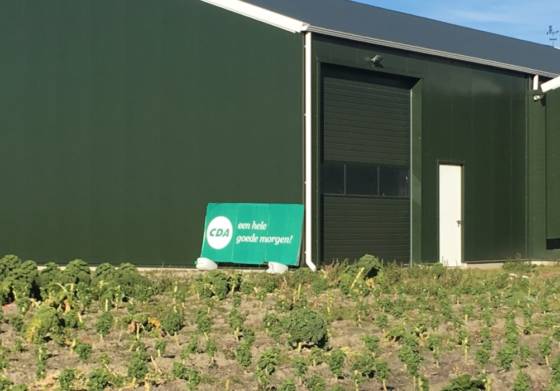
Its vote, like Dutch church attendance, had been collapsing as traditional CDA supporting farmers flocked to the BBB but has now revitalised under the youthful and well-respected Bontenbal, who now faces his second big test as party leader and is tipped by some as a future PM.
The CDA has made housing and a gradual reduction in mortgage tax relief as its big issue of the 2025 campaign.
ChristenUnie (CU)
Campaign leader: Mirjam Bikker
Seats in parliament: 3 or 2%
The ChristenUnie is the mildest of the three Dutch Christian parties and is sometimes described as left-wing because of its progressive socio-economic policies.
However, Biblical principles are the basis of party policy and most of its votes come from the ‘Bible Belt’ region. The ChristenUnie is opposed to abortion and euthanasia and ties itself in knots over homosexuality, which it prefers to ignore.
D66
Campaign leader: Rob Jetten
Seats in parliament: 9 or 6.3%
Democraten 66 was formed in 1966 with the aim of reforming the Dutch democratic system. Describing itself as a progressive, socially liberal party, D66’s political fortunes have been a story of ups and downs: the party has been a junior partner in several coalitions, while the low point was reached in 2006 when it was reduced to a rump of three MPs.
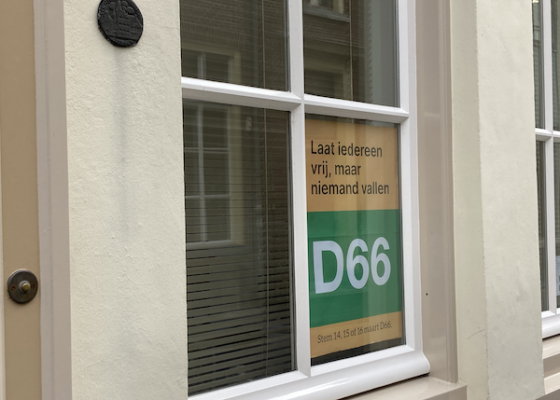
The youthful Rob Jetten replaced career diplomat Sigrid Kaag as leader for the 2023 election, losing 15 seats in the process. But the party is on the up again and tipped to win a couple more seats in October.
D66 has also shifted the focus of its new election manifesto from two years ago, putting democracy, security and housing at the top of the agenda, rather than climate.
Denk
Campaign leader: vacant
Seats in parliament: 3 or 2.4%
Denk was founded in 2015 by two Dutch Turkish MPs when they split from the Labour Party (PvdA) and went on to win three seats in the 2017 vote.
Often described as too pro-Erdogan and too Muslim, the party was led into the last election by Stephan van Baarle, who has a Dutch mum and Turkish dad and describes himself as agnostic. In August he quit as leader in an apparent conflict with the party’s management board and just a few weeks later he got back the top job again.
Forum voor Democratie (FvD)
Campaign leader: Lidewij de Vos
Seats in parliament: 3 or 2.2% of the vote
Since emerging as the biggest party in the provincial elections in 2019, Thierry Baudet’s far right Forum voor Democratie has seen its fortunes plummet, following a string of scandals involving financial irregularities, racist and anti-Semitic Whatsapp messages and conspiracy theories.
In a surprise move in August, Baudet handed over the campaign leadership to 28-year-old Lidewij de Vos, who he hopes will win the youth vote. He also blamed Forum’s lack of progress under his leadership on “polarised opinions about me and a five-year-long blockade in the media”.
GroenLinks/PvdA
Campaign leader: Frans Timmermans
Seats in parliament: 25 or 15.8% of the vote
GroenLinks (Green-Left) was officially formed in 1990 from a grouping of four smaller left-wing and green parties – the CPN, EVP, PPR and the PSP. The party’s core values are environmental sustainability and social justice, but it has a bit of a leftist intellectual image and has never been in government.
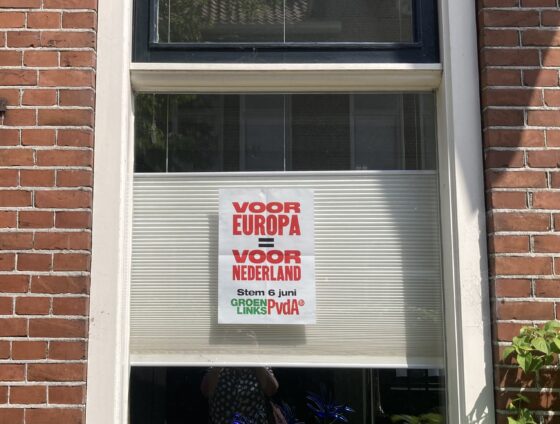
For the last and this election, it has joined up with the Partij van de Arbeid (Labour Party) which was formed in 1946 and has former European commissioner and Labour minister Frans Timmermans at the helm. Erudite and experienced, Timmermans has not proved a popular choice. The two parties are planning a formal merger but have not yet gotten round to it.
The party has put building more homes top of its priority list, and has included a net migration cap of between 40,000 and 60,000 a year for the first time.
JA21
Campaign leader: Joost Eerdmans
Seats in parliament: 1 or 0.68% of the vote
JA21 (Juist Antwoord, or right answer) was founded in December 2020 (not 2021) by Eerdmans, a former ally of Pim Fortuyn, and Annabel Nanninga, Amsterdam city councillor for the far-right Forum voor Democratie.
Both left the FvD after the anti-Semitism row and took most of Forum’s MEPs and senators with them. The polls predict it is likely to benefit from the downturn in the PVV and VVD’s fortunes, taking votes from both.
New Sociaal Contract (NSC)
Campaign leader: Eddy van Hijum
Seats in parliament: 20 or 13% of the vote
NSC was founded by former Christian Democrat MP Pieter Omtzigt to fight the 2023 election and entered parliament and the government on a wave of optimism.
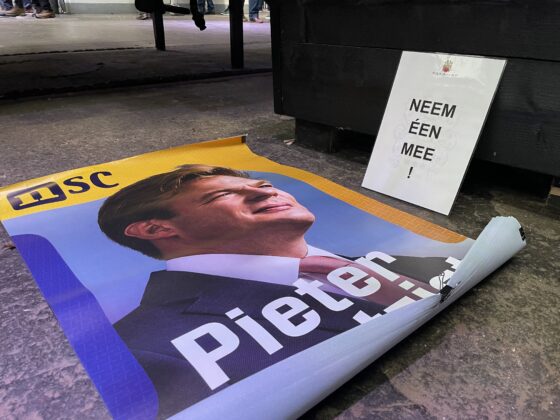
Fast forward two years and Omtzigt has stepped down after two burnouts, the party has quit the government in a row over asylum and the polls indicate it will be lucky to retain any seats at all in October.
It has included increasing the minimum wage €18 an hour and including dental check-ups in the basic health insurance package as part of its draft election manifesto.
PvdD
Campaign leader: Esther Ouwehand
Seats in parliament: 3 or 2% of the vote
The Partij voor de Dieren (Party for Animals) was established in 2002 and claims to be the first mainstream political party in the world to put animal rights first. It was founded by Marianne Thieme, a Seventh Day Adventist, who stood down in 2019 and was hit by bitter infighting at the start of the 2023 campaign.
PVV
Campaign leader: Geert Wilders
Seats in parliament: 37 or 23.5% of the vote
The Partij voor de Vrijheid (Freedom Party) was formed in 2006 by Geert Wilders after he broke away from the free-market, centre-right Liberals (VVD). Wilders – famed for his odd, peroxide blond hair – has made a career of speaking out against the ‘Islamisation’ of the Netherlands and lives under armed guard after receiving death threats.
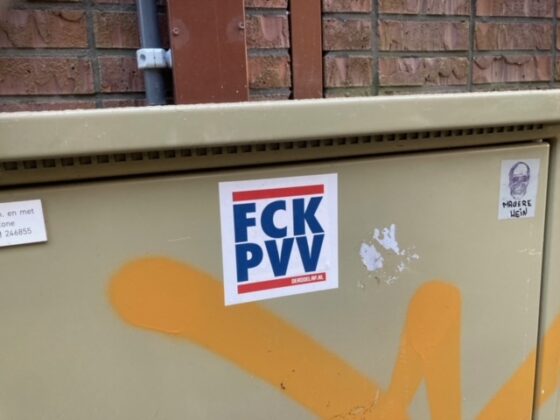
The PVV was part of the outgoing administration – after being surprise winner in the November 2023 vote – but pulled out in the summer in a row over asylum legislation. All the other main political parties have said they will not work with the PVV – which has made a total freeze on asylum its top priority – in government again.
The PVV has a list of 80 prospective MPs but only one member, Wilders himself, so no power struggles there then.
SGP
Campaign leader: Chris Stoffer
Seats in parliament: 3 or 2% of the vote
The Staatkundig Gereformeerde Partij is the most orthodox of the fringe Christian parties and usually wins 2 or 3 seats in the 150-member parliament. The party believes the country should be governed ‘entirely on the basis of the ordinances of God as revealed in the Holy Scriptures’ and does not think women should play an active role in politics. The website is closed on Sunday. Seriously.
SP
Campaign leader: Jimmy Dijk
Seats in parliament: 5 or 3.15% of the vote
The populist-left Socialistische Partij, with its logo of a tomato, broke into national politics in 1994 with the slogan ‘stem tegen, stem SP’ (Vote against, vote SP). Since then it has hovered around on the sidelines.
The party is anti-EU, anti-globalisation, and pro the working man – similar to the PVV, but without the racism. The SP’s draft manifesto includes an increase in the minimum wage to €18 and the introduction of income-related health insurance.
The party also wants to nationalise all public transport and energy companies, and add one million new homes with a rent of less than €800 a month to the national housing stock.
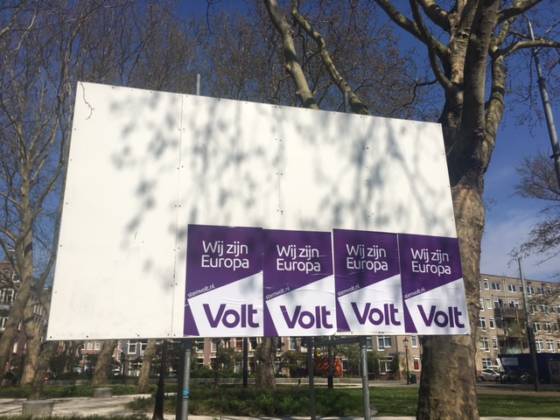
Volt
Campaign leader: Laurens Dassen
Seats in parliament: 2 or 1.71%
Young and pan-European, Volt has more than 30 representatives across Europe and broke through in the Netherlands in 2021. It is forecast to win three or four seats this time round. Website
VVD
Campaign leader: Dilan Yesilgöz
Seats in parliament: 24 or 16%
The Volkspartij voor Vrijheid en Democratie (People’s Party for Freedom and Democracy) is a tricky party to place outside the Dutch political sphere. Supportive of the free market as far as the economy is concerned, the party is traditionally liberal on social issues.
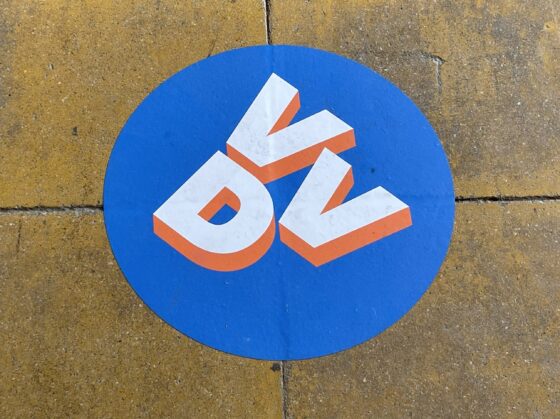
Mark Rutte was prime minister and VVD leader for 13 years but was replaced by Yeşilgöz ahead of the last election, who promptly lost 10 seats. She came to the Netherlands as a refugee but takes a hard line on refugees herself – and her outspoken and untamed use of social media is seen as one of the main reasons why support for the party has plunged yet again.
The VVD is promising lower taxes for business owners, more financial benefits for workers and increased spending on defence, while cutting back on healthcare coverage and welfare in its election plans.
Thank you for donating to DutchNews.nl.
We could not provide the Dutch News service, and keep it free of charge, without the generous support of our readers. Your donations allow us to report on issues you tell us matter, and provide you with a summary of the most important Dutch news each day.
Make a donation